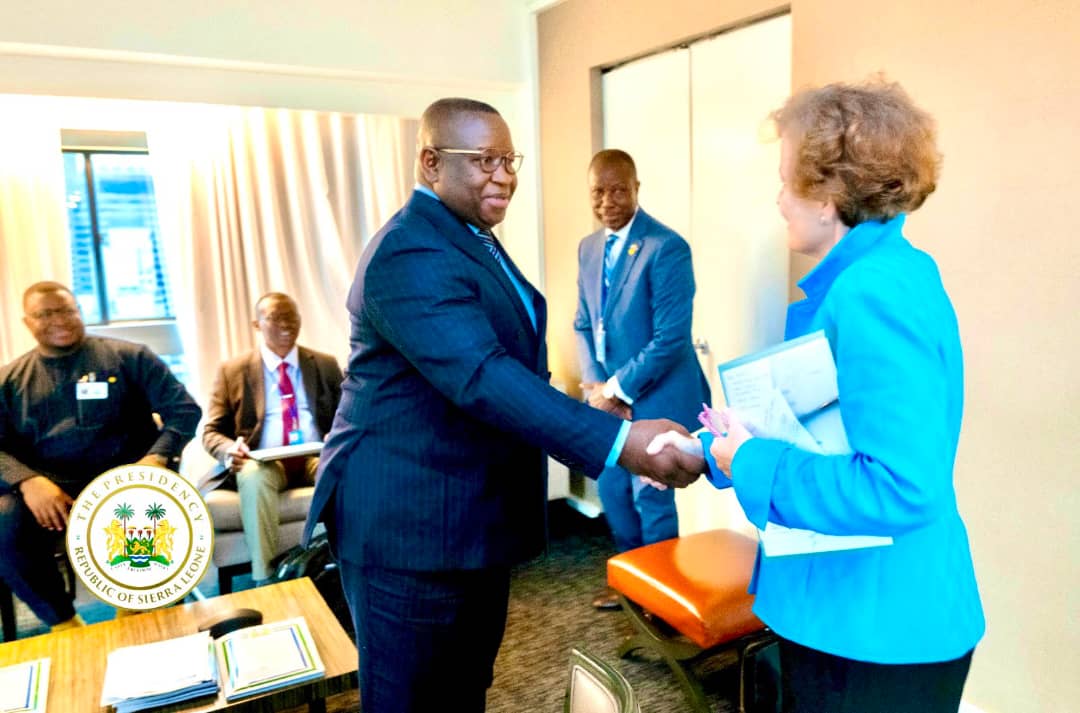By Jerry Kai-Lewis
There is no media poverty in the world.
It must be categorically stated here that there is no poverty in the media. The media is not poor. However, the poverty the media is experiencing in Sierra Leone is self-created. There is a criminalisation of the sector due to poor ethical practises encouraged by the subjects of news stories that make for sensational headlines. Sensationalising news headlines and front pages by journalists who hope to use such damning and damaging headlines to secure cash and kind from the subject of such news stories and the compromise by media marketers aimed at securing advertising in their newspapers have contributed to the poor returns media houses experience in Sierra Leone.
The self-created poverty of the media sector that has reduced media houses and media practitioners to mere beggary has its roots from several fronts, which listing is not exhaustible. There is the problem of low standard of print journalism. Planning for what appears in the paper including the level of reporting has been reduced to a very low level with almost any and everything that is written as long as it can bring in revenue to the paper or the journalist find their way into newspapers. This dropping of the standard has affected the craft in Sierra Leone and has gone a long way to also affect the bottom line of the media houses.
After the media as a unit has agreed on how advertising placements are to be charged across the board, many unethical marketers and journalists routinely make deals with advertisement placers that undermine and undersell the rest of the sector which leads to one or some papers getting many advert placements while the majority don’t. It is a well-known practice for marketers and journalists in cahoots with communications or public relations people in corporate entities and the government who also hope to make a commission for placing adverts in papers to negotiate on the agreed fixed prices for advert placements. Therefore, one or several media houses benefit at the detriment of the entire sector.
The undermining of investigative journalism has given birth to grand public sector corruption and has gone a long way to affect revenue generation and salary payments for media houses and practitioners respectively. The death of investigative journalism in Sierra Leone has seen many news stories worthy of printing swept under the carpet because publishing them would affect the relationship the media owner has with the institution or individual that is the subject of the investigated story. This way public officials and private people found wanting in corrupt practices that affect the public routinely dodge public sanction due to money hungry newspaper or media owners who would sell the soul of their concerns for the pittance they will receive for encouraging such individuals and institutions to keep doing what they do against the interest and wellbeing of the public.
The media serves the public as watchdogs. But when media practitioners and owners play into the hands of those who work against the interest of the public they become part and parcel of why the media sector continues to be poor and fails to grow from small to big business concerns where the reporters and all receive huge shares of what is accrued by the media house. This way only the proprietor or the publisher benefits at the expense of the journalists who remain poor despite their hard work and ambition.
By falling into the hands of the subject of news stories, by receiving payment from them to avoid their stories appearing in the newspapers the media fails in checkmating their excesses and leads to media practitioners being bullied by the subjects of their reporting. When such stories fail to appear in papers they also affect the news readership who will be very interested in such stories thereby leading to better sales.
There is no media poverty in the world. Poor media practices have affected the media narrative in Sierra Leone and have created media hustlers who practise journalism for survival. Such media houses and practitioners continue to short change themselves by acting as conduits for corrupt public and private sector players to impose self-inflicted poverty on the media by dropping the standards, both in news reporting and the agreed rates for advertisement placements in newspapers.
In countries with high media ethics, journalists and editors are not considered poor. They drive around in their own vehicles or vehicles provided by media houses, they live in enviable sections of the society because the media brings in substantial revenue and returns. However, the same cannot be said for Sierra Leone where media poverty has taken hold of the sector.









